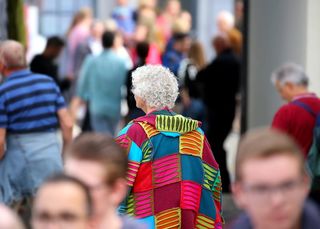Imagine you go and see your doctor because you have felt under the weather for a couple of days. To your surprise, after you have summarized your symptoms, the first question that your doctor asks is whether you belong to enough social groups. She asks whether you are a member of a sports group or book club, and if you feel socially connected to your colleagues, friends and family. You dutifully answer her questions but also wonder what any of that has to do with your symptoms.

Even though this type of questioning is not what you might experience next time you see your doctor, according to a growing body of research, it would not be a bad idea for health practitioners to ask these questions. This is because social connectedness and belonging to social groups has been found to be a powerful predictor of people’s physical and mental health.
For example, Cohen and colleagues showed in 1997, that having a diverse social network was associated with a lower susceptibility to common colds. Their findings, reported in Psychological Science, indicated that the 20 percent of people in their sample who were least sociable were more than twice as likely to get colds as the 20 percent who were most sociable.

There is also evidence that the onset of more serious mental and physical health conditions is affected by social connectedness. Consider for example research by Cruwys and colleagues (published in Social Science & Medicine in 2013) that showed that those who reported belonging to fewer social groups where more likely to experience depression relapse. More specifically, what Cruwys and her colleagues found in a large sample of British older adults was that over the period of a year, the chance of a depression relapse was only 15 percent for those who reported belonging to more than 3 social groups. It increased to 31 percent for those who belonged to only one social group and was as high as 41 percent for those who reported not to belong to any social groups.
Similar profound effects are observed when it comes to physical health conditions. Ruthledge and colleagues reported in the journal Psychosomatic Medicine (2008) that more isolated women experienced strokes twice as often compared to women with more social relationships.
These findings are profound and they show that it is our social relationship, and the quality of these relationships that crucially determine mental and physical health. In the words of Cohen and colleagues, social relationships “get inside the body”.
Even though the finding that social connectedness protects health is well documented and may not come as a complete surprise, the question that is more difficult to answer is why that would be the case. What is it that these social groups offer that may be just as beneficial as a daily dose of vitamin C and regular exercise? There is now good evidence that if we feel we belong and connected to others, we feel stronger and are better able to deal with the challenges in life. Groups provide in that sense what Durkheim in his famous 1951 book titled Suicide called “existential security.” Along similar lines, recent research by Greenaway and colleagues showed that group memberships provide us with grounding and help us to develop a sense of purpose, direction, and meaning in our life. It is through our interaction with others that we understand ourselves and are able to make sense of the things that happen around us. It is these very basic human ‘securities’ that social group memberships provide that are responsible for these beneficial health effects.
A group a day…
What are the conclusions to draw from this research? The most important take away message is probably that these findings underline the profound way in which we are affected by our social relationships. They point to people’s capacity to draw physical and mental strength from social connections and memberships in social groups to maintain and enhance well-being.

More important still are the practical implications of these insights. They suggest that an active group life may be another important way in which we can inoculate ourselves against mental and physical health risks. After reviewing the research evidence, Robert D. Putnam in his book “Bowling alone” in 2000 concludes: “As a rough rule of thumb, if you belong to no groups but decide to join one, you cut your risk of dying over the next year in half.” Aside from the effectiveness of such a social cure, interacting with others is also the most enjoyable way to keep the doctor at bay.


